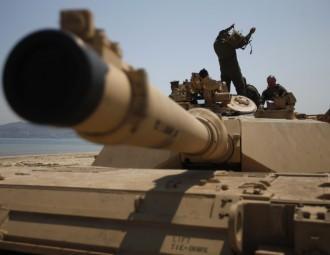Viachaslau Pazniak: UN Security Council should approve intervention into Syrian conflict

In order to discuss the legitimacy of international intervention in the Syrian conflict, we must first prove the use of chemical weapons in the country.
It was stated by Viachaslau Pazniak, political scientist and PhD in philosophy in the interview with the EuroBelarus Information Service.
He believes that it is too early to talk about the possible intervention of western countries in the Syrian conflict: “To give political and legal assessment of any action, we should do something first. As long as there is no definite subject for analysis, we can only abstractly speculate about it. But as we know, there can be no “if” in history. So I would not anticipate the events, because in this very case there is a danger of coming down to speculations about what has not yet happened. ”
Viachaslau Pazniak reminded that there is a standard set of valid reasons for an international intervention into the internal country situation. First of all, the supreme body that has the authority to sanction certain international actions is the UN Security Council. Secondly, certain actions in circumvention of this body may be used only when it comes to a difficult humanitarian situation in a country, serious violations of human rights, genocide or other issues involving a large number of human victims.
“On the whole, international law presupposes that force is applied primarily to reflect external aggression. The second principle is what is called the ‘responsibility to protect’: when the government and the political power in a country are unable to cope with the devastating results of internal conflicts or humanitarian catastrophe, the international community has to intervene,” – says the expert.
He noted that the UN special commission operates now in Syria; it is called to find out whether the chemical weapons have been used in the country. “Later, based on a confirmation or disproof of the information about the chemical weapons, it will be possible to analyze the actions the commission will take. But so far I would say that it is premature to make conclusions,”- said Viachaslau Pazniak.
Pazniak also noted that only one incident of using chemical weapons is “an extremely serious reason to take coordinated international actions”. “However, these actions with no doubt should be considered and taken first of all by the UN Security Council. But at the moment international expert community is discussing not the options of the Security Council, but the hypothetical actions the leading countries of the world could take on Syria”, - he said.
-
03.01
-
07.10
-
22.09
-
17.08
-
12.08
-
30.09








































